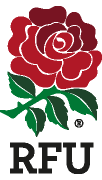There is an illogical irony in the boys Spring Term Games Programme of most independent schools. In the shortest term, in the worst of the winter weather, there are more competitive sports than any other term. This has created unsustainable overcrowding. Other terms also have a wide range of sporting activities on offer to pupils. However, the Spring Term is different. Most sports at that time of year are all aimed at the most able pupils, with the result that the same boys run from one activity to another. Practices are conducted at all sorts of unlikely times in order that the same pupils can compete in a variety of sports, all in search of coveted regional and national success.
National Hockey finals occur at this time of year, alongside a growing Soccer programme, plus a wider Sevens programme. For some schools there are also Rackets and Fives, both of which have national competitions in this term. And that’s without the influence of Rowing!
How does this situation come about? If the programme was designed from scratch again, it would not look anything like this. So, how did it happen?
The problem is relatively recent. Twenty years ago, the primacy of boys’ Hockey in the Spring term was undisputed for most schools. Alternatively, there were two term Rugby schools who simply continued their Autumn Term programme after Christmas, and livened it up a little for senior boys in March with some Sevens.
The start of the change was the development of astroturf pitches. This created a Hockey apartheid, where the able played on fast reliable surfaces, and the full potential of the game became clear. Pupils who were most able to control the ball, and hit it hard, were provided with a surface that made those skills easier, and more effective. The less able had the limitations of the game exacerbated by muddy, grass pitches, which in turn came to be less well maintained. The logical answer to this was to introduce the national game – Association Football, alongside Hockey. This made perfect logic: the Hockey players had immaculate surface, and the pressure on these was reduced as a sizable number of pupils played Soccer, on perfectly good grass pitches.
This logic reckoned without the engaging power of the national game. Association Football is a door that cannot be left ajar: it is either closed, or it blows wide open. There are few schools who introduced Soccer and have not subsequently had to artificially protect Hockey. This creates an illogical position where it is necessary for a boy to prove beyond reasonable doubt his incompetence at Hockey before being allowed to pursue an interest in Soccer.
Alongside this tension came the growing place of Sevens. Twenty years ago, the distinction of one and two terms schools was entirely valid. Hockey playing schools - who had put their rugby ball away at Christmas - retrieved it from the cupboard, and a few boys took part in no more than three competitions before a National Competition at Rosslyn Park, which was played on a metaphorically level playing field between schools with almost identical philosophies, and programmes.
Sevens, however, had its own lack of logic. Enthusiastically pursued in prep schools, it then hibernated within the senior school programme for three years, to emerge again in muted form in the Sixth Form.
When changes came to the programme in the early Twenty First Century, they were all additions to what was already going on, and all aimed at the high performance pupils, putting them under greater pressure. Not only this, but modular exams created a January window, and the advent of indoor facilities meant that cricket preparation crept earlier – typically to early January. The pressure lower down the school increased through the emergence of Sevens competitions for other age groups, as well as the intrusion of Daily Mail Cup Rugby Knockout Rounds. The latter was fuelled by the lure of a Twickenham appearance which was no longer the dream of the elite schools, since the introduction of Plate competitions at both age groups legitimised every school’s ambition to tread the Twickenham turf.
Several aspects of the current situation are unsustainable. Compelling pupils to play Hockey against their (strong) wishes and those of their parents requires constant effort in many schools, often to defend the intellectually indefensible. The growing Sevens programme overlaps with Hockey at every age group, squeezed into Sundays and Wednesdays which require United Nations style negotiations to share the stretched playing resources. The enhanced profile of Sevens, whose climax has gone beyond Rosslyn Park RFC to a game at Twickenham as part of the London Sevens will grow further once it becomes an Olympic sport at Rio in 2016.
So, how will it all end? How about this?
Create a Games Programme based on market forces and the logical power of choice. A full programme of all sports operates simultaneously for each of the sports that a school offers. This might be some combination of Hockey, Association Football, Sevens and Rowing. Bigger schools would offer more, smaller schools less. The focus and ambitions of different schools would vary according to their culture, history and aspirations. Inter school competition would occur each Saturday in every sport, as at present, but at very few other times. Sevens competitions would be hosted by schools on Saturday afternoons, at different age groups with an agreed frequency, possibly creating regional or local competitions between schools, similar to this year’s experimental northern Super Sevens competition. These would occur alongside the competitive programme of other sports, meaning that pupils could only be involved in one sport (exceptionally, possibly, two). Schools would aspire that all programmes would be of equal quality, and equally demanding of pupils in terms of effort and commitment. There would be a free choice between activities.
So, what would be the shortcomings of this proposal, which appears radical - but only in the context of historical provision?
There would be a degree of competition between sports to attract pupils. Certainly. However, this is little different from what happens between academic subjects attracting pupils at A Level choice time. Granted, sports would be under greater pressure to make themselves more attractive to pupils through the quality of their programme. Would that necessarily be a bad thing? For a hundred and fifty years, some schools have hidden shabby games provision behind compulsion to participate. Choice is logical, consistent and the way of the future. The key is that pupils make choices for positive reasons, and not because there are soft options in the programme. All choices must be equally demanding. The role of the Director of Sport is to control the quality of the programme.
The number of Hockey teams would reduce. This is indisputable. Hockey would become a game played by a smaller number of enthusiastic pupils.
The standard of Hockey would decline. Possibly. It would depend upon the level of coaching, and the culture of the game in a school. If this coincided with a raise in standards elsewhere, or an increase in the number of pupils taking part in a meaningful programme across all sports, would it matter?
More pupils would choose to play Association Football if they were allowed to. Almost certainly. This would have an organisational expedient in that most schools have more grass pitches than astroturf ones. The range of facilities (and coaching expertise) would be more widely used. Is it not logical for schools to have provision for the national game?
The whole issue is underlain by the fundamental question: what is the purpose of the games programme in a school? If it is the pursuit of competitive success by a small number of over committed pupils, then the current system performs well. If its aim is to provide a meaningful programme of coaching and competition for a wide range of pupils, then maybe it would sustain review. Are the pupils there for the benefit of the school, or is the school there for the benefit of the pupils?
















